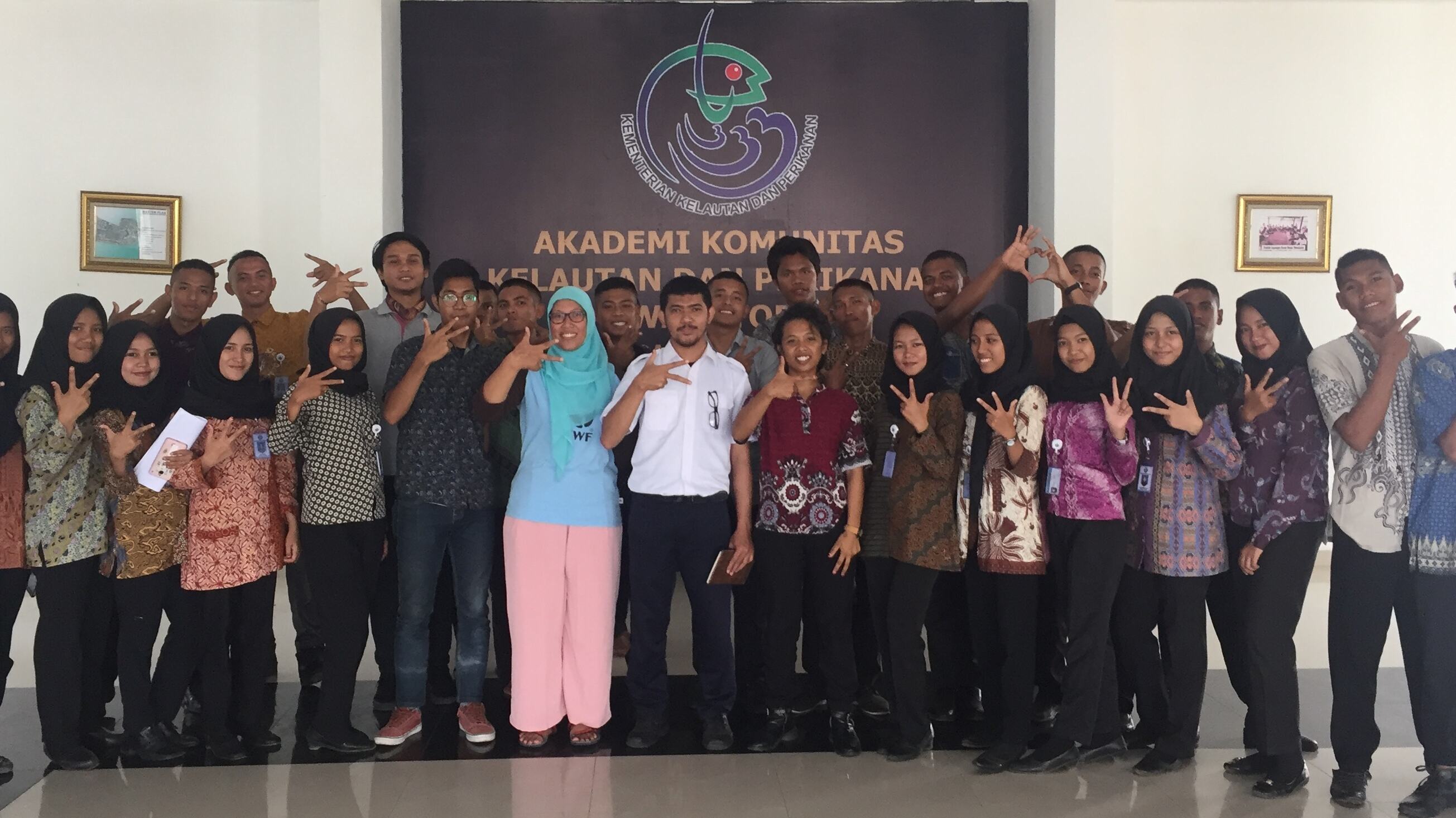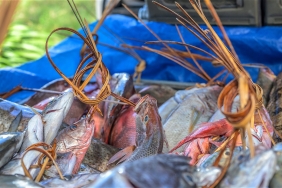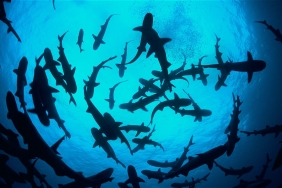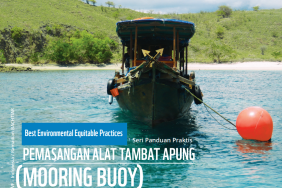MARINE & FISHERIES COMMUNITY ACADEMY, CITIZEN SCIENTIST CANDIDATE PENDAT
Waste collection is one of the activities carried out to support the Plastic Free Ocean program in various regions in Indonesia, one of which is Wakatobi. The condition of Wakatobi, which consists of 97% sea and 3% land, makes Wakatobi one of the destinations for ocean plastic waste. This has become a threat to the government and the people of Wakatobi to tackle the waste.
A variety of communities are contributing to be part of the citizen science network, which realizes community participation in data collection and identification of waste on our coast. This network will become a data collection platform for ocean plastic waste circulating throughout coastal Indonesia. Hopefully, this network will be able to become a survey and monitoring platform for marine debris.
In Wakatobi, WWF explored cooperation with the Academy of Marine Fisheries Community (AKPP), one of the programs of the Indonesian Ministry of Marine Fisheries in improving the quality of human resources to maintain the condition of fisheries in Indonesia.
"Hopefully, with AKPP, the data collection of plastic waste on the coast of Wakatobi can be perpetuated in the future," said Martina Rahmadani (WWF-Indonesia). "The method that became the tool for this data collection is the method of The Commonwealth Scientific and Industrial Research Organisation (CSIRO), an Australian research institute introducing how to map the distribution of coastal waste with random sampling," she added.
The first step taken by WWF together with AKKP is to train how to record waste for AKKP cadets and lecturers. This is important to build public understanding and awareness, build the capacity of partners, gather the commitment of partners, build a data collection system, and form a national network for plastic waste monitoring.
This sharing session (8/9/2018) was greeted with high enthusiasm from the participants. Including when Martina (WWF-Indonesia) explained the digital platform currently being developed by WWF-Indonesia, namely the citizen science network (CSN). "Anyone, anywhere, can collect data on the amount of plastic waste in the ocean," said Martina. Martina Rahmadani also gave some results of sampling activities in several coastal areas that have been carried out, one of which is Fatu Sahuu Beach, Kapota.
"The application of this waste data collection method will be able to produce basic data on the amount of plastic waste concentrate on the coast, this is considered useful by AKKP to get primary data on waste concentrate on the coast of Wakatobi," said Arif, AKKP Oceanography lecturer.
"This basic data can later be used to encourage the government in making efforts to deal with plastic waste. To get the right recommendations, this data collection is carried out regularly for 12 months. This data will also be able to be modeled so that the recommendations issued are more applicable, "he explained later.
After the presentation session was over, it was continued with a field practice session, which was a simulation of waste data collection in the field of the AKKP Wakatobi Main Campus building. Enthusiasm was even higher when going to the field, the cadets began to ask about various things they still did not understand.
This is evidence of the cadets' interest in learning this method for collecting waste data on the coast of Wakatobi.
"This waste data collection is very important," said Wira, Coordinator of the Ecotourism Study Program, AKKP Wakatobi. "We want to commit to follow up the results of this activity and mobilize the cadets to collect data. We are also ready if we are involved in analyzing the data obtained," he continued optimistically. Hopefully, with this, the problem of waste on the coast of Wakatobi can be better handled in the future.





